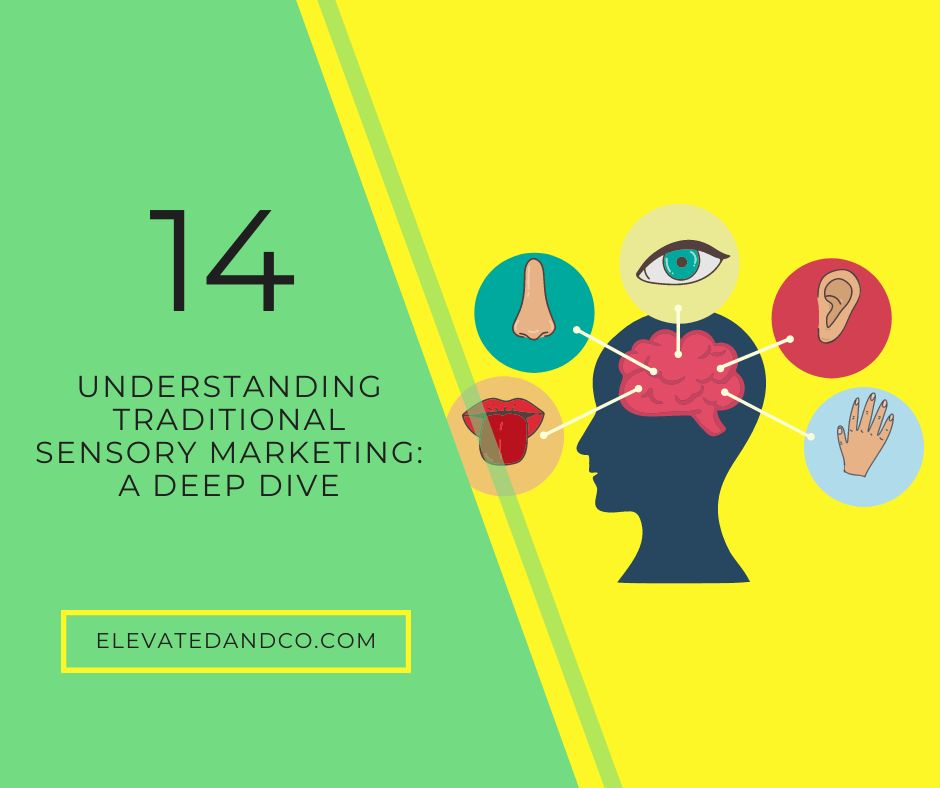Sensory marketing, a strategy that engages consumers’ senses to influence their behavior, has been a cornerstone of traditional marketing for years. This article will explore the concept of conventional sensory marketing, its importance, and how it’s implemented across various industries.
What is Traditional Sensory Marketing?
Traditional sensory marketing is a marketing strategy that targets the five senses – sight, sound, smell, taste, and touch – to create a deeper, more emotional connection with consumers. The goal is to influence consumer perception and behavior by appealing to their sensory experiences, enhancing the overall brand experience.
The Importance of Sensory Marketing
Sensory marketing is a powerful tool because it taps into the subconscious part of the consumer’s mind. It creates a multi-dimensional experience that goes beyond the basic features and benefits of a product or Service. By engaging the senses, businesses can evoke specific emotions, memories, and associations that make their offerings more appealing and memorable.
Implementing Sensory Marketing Across Industries
Different industries utilize sensory marketing in various ways. Here are a few examples:
- Retail: Retail stores often use sensory marketing to enhance the shopping experience. For instance, they may use visually appealing displays, play calming or energizing music, or use specific scents to create a pleasant atmosphere.
- Food and Beverage: This industry heavily relies on sensory marketing. Restaurants and cafes focus not only on the taste of their food but also on its presentation (sight), aroma (smell), texture (touch), and even the sound of sizzling food or frothing coffee.
- Automotive: Car manufacturers pay attention to the sensory experience of their vehicles. This includes the visual design, the sound of the engine, the smell of the new car interior, the feel of the leather seats, and even the taste of success and luxury they aim to convey.
- Cosmetics: The cosmetics industry uses sensory marketing by focusing on the texture and scent of their products, the design of their packaging, and the sound of the product being applied.
Studies Done
The study titled “An Investigation Into the Effects of Destination Sensory Experiences at Visitors’ Digital Engagement: Empirical Evidence From Sanya, China” delves into the intricate relationship between sensory experiences and visitors’ digital engagement with a destination. By analyzing online review comments, the research identifies the sensory experiences of visitors and examines their effects on digital engagement, emphasizing the role of destination dependence and identification. The findings reveal that positive sensory experiences significantly enhance visitors’ bond and identification with a destination. This bond subsequently amplifies their digital engagement on social media platforms, underscoring the pivotal role of sensory experiences in shaping visitors’ online interactions and advocacy for a destination.
The Science of Sensory Marketing
“The Science of Sensory Marketing” article delves into the burgeoning realm of sensory marketing, emphasizing its potential to reshape consumer perceptions and behaviors. Central to this discourse is the notion of “embodied cognition,” which posits that our physical sensations can subconsciously influence our decisions and judgments. The article showcases various research studies that underscore this concept, illustrating how seemingly unrelated sensory cues can profoundly impact consumer perceptions. Furthermore, it highlights real-world applications, detailing how several companies are harnessing the power of sensory marketing to enhance brand appeal and foster deeper consumer connections.
Conclusion
Sensory marketing is not just about appealing to the senses; it’s about creating a holistic experience that resonates with consumers on a deep emotional level. By understanding and leveraging the power of sensory marketing, businesses can create memorable brand experiences that drive consumer loyalty and engagement.

